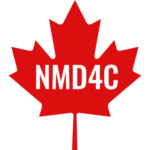Annual NMD4C Early Career Awards
2025 Award Recipients
Early Career Biomedical Researcher of the Year

Dr Kiran Polavarapu
Postdoctoral Researcher, Children's Hospital of Eastern Ontario
Dr Kiran Polavarapu completed his PhD in 2019 at the National Institute of Mental Health and Neurosciences (NIMHANS) in India. He is an M.B.B.S (Bachelor of Medicine and Bachelor of Surgery) graduate who shifted his focus to research in neuromuscular disorders and neurogenetics. His PhD work involved developing next generation sequencing (NGS)-based tests for detection of both copy number variations and point mutations in Duchenne Muscular Dystrophy.
Major Achievements
Through exceptional research abilities and a desire to work on novel analysis methods in rare disease genomics, Dr Polavarapu pushes analytic and scientific boundaries to make a difference to patients who remain without a diagnosis after standard diagnostic workup. His medical background and seven years of clinical experience in a neuromuscular clinic mean that he has a clinical understanding of neuromuscular phenotypes and presentations that are rare to find in a dry lab researcher. He combines this with a depth of expertise in medical genomics in his work with Dr Hanns Lochmüller’s team, solving many undiagnosed cases from this neuromuscular cohort.
Dr Polavarapu published three notable papers in the past year, including a joint first authorship in Nature Medicine, adding to his career total of over 100 publications.
Dr Polavarapu is first author of the publication in BRAIN, identifying the genetic cause of Congenital Myasthenic Syndromes (CMS) through exome sequencing in more than 100 families from India, one of the largest studies in CMS to date. This study identified numerous new genes, mutations and phenotypes, benefiting patients and their families by defining a molecular diagnosis allowing for effective treatment.
Kiran is a co-author on a publication in SCIENCE led by a team in Germany that elucidated the role of a group of chaperonin genes (TRiC) in patients with variable brain malformation and neurodevelopmental phenotypes through analysis of genome data in a large database (RD-Connect GPAP).
Kiran is the co-first author of the publication in NATURE MEDICINE solving 500 undiagnosed cases through programmatic exome reanalysis in a large cohort within the SOLVE-RD project in a collaborative effort led by teams in Spain and The Netherlands.
Dr Polavarapu’s work has also had a global impact, particularly for patients in India and Turkey, which are both regions underrepresented in genomic research and diagnostics, ensuring that the data from the patients analysed for his research is all accessible via the RD-Connect Genome-Phenome Analysis Platform (GPAP) to the clinicians and researchers in these regions who submitted the patients for analysis, contributing to upskilling of researchers in these regions and ensuring that the patient data is not used for Western research without remaining accessible in its country of origin.
Early Career Publication of the Year

Dr Emma Sutton
Postdoctoral Researcher, The Ottawa Hospital Research Institute
Liver SMN restoration rescues the Smn2B/- mouse model of spinal muscular atrophy
Published in the journal eBIOMedicine.
Publication Highlights
Dr Sutton is the first author on a paper published at eBioMedicine entitled "Liver SMN restoration rescues the Smn2B/- mouse model of spinal muscular atrophy". Through this research, Dr Sutton shows that liver pathology in Spinal muscular atrophy (SMA) is a direct impact of liver intrinsic survival motor neuron (SMN) depletion, and demonstrates that the liver contributes to whole-body pathologies in SMA. This is significant because the importance of peripheral liver SMN is not yet known and could help further elucidate therapeutic targets for SMA.
About Dr Emma Sutton
Dr Emma Sutton completed her bachelor’s degree in Neuroscience where she then went on to obtain her PhD from the Faculty of Medicine at Keele University, England. During her PhD, Emma was chosen as the postgraduate representative for the Faculty of Medicine and actively participated in various committee panels, including two ethics boards and a diversity and inclusion committee. Emma moved to Ottawa, Canada, to pursue a post-doctoral fellowship in Dr Rashmi Kothary’s laboratory at the OHRI, leading innovative research on SMA. In a short time, Emma has made significant contributions to three papers that have been published from the lab in 2024 in the journals Nature Biomedical Engineering, Journal of Neuromuscular Disorders, and eLife. Emma is a 2025 NMD4C and Muscular Dystrophy Canada (MDC) postdoctoral research fellowship awardee, a MDC Co-PI translation grant awardee, and a University of Ottawa Dr Eric Poulin Centre for Neuromuscular Disease post-doctoral outstanding research awardee.
Most recently Emma has been selected as co-chair for the new, NMDC, basic science trainee committee (BSTC) and continues to involve herself in the wider aspects of research, networking with the Canadian neuromuscular field and plans to continue high end research with her recent grants and publish in top quality journals.
Early Career Clinical Researcher of the Year

Dr Grayson Beecher
Assistant Professor, Division of Neurology, Department of Medicine, University of Alberta
Dr Grayson Beecher is an Assistant Professor in the Division of Neurology at the University of Alberta and the Medical Director of the Kaye Edmonton Clinic EMG Laboratory. He completed residency in Adult Neurology in 2020, at the University of Alberta, following which he completed a two-year fellowship in Neuromuscular Medicine at the Mayo Clinic (Rochester, MN) and subsequently returned to faculty at the University of Alberta in July 2022. Dr Beecher holds certification in electromyography from both the Canadian Society of Clinical Neurophysiologists (CSCN) and the American Board of Electrodiagnostic Medicine (ABEM). He has research interests in autoimmune neuromuscular disorders and neuromuscular ultrasound. Dr Beecher is a clinician-researcher, mentor, educator, and leader in neuromuscular ultrasound (NMUS) clinical research and integration in clinical practice and education. Since 2017, Dr Beecher has published 34 journal articles and a book chapter and his research has spanned diagnostic, therapeutic, and educational innovations.
Major Achievements
Dr Beecher has made significant contributions to the clinical neuromuscular research through his consistent and diverse research initiatives, notably publishing an original research article “Paradoxical thinning of the diaphragm on ultrasound is a risk factor for requiring non-invasive ventilation in patients with neuromuscular diaphragmatic dysfunction” in Muscle & Nerve in 2024. This study found that paradoxical thinning is an independent risk factor for non-invasive ventilation requirement, with the high impact on clinical practice demonstrated by an invitation for Dr Beecher to present the findings during the diaphragm ultrasound lecture series at the 2024 AANEM Annual Meeting.
Dr Beecher continues to be a leader in Canadian NMUS, and as Medical Director of the University of Alberta’s EMG Laboratory has overseen the successful integration of high-frequency ultrasound systems and obtained two competitive grants to support NMUS infrastructure and research in his first two years as faculty. Dr Beecher has also advocated for clinical NMUS training and education and conducted research on the value and feasibility of clinical education of NMUS, serving as corresponding author on “Feasibility, Reliability, and Educational Value of Neuromuscular Ultrasound Training in a Canadian Neurology Residency Program: A Pilot Study” in 2024. This research addresses the gap in NMUS training in Canada, demonstrating both feasibility and high educational value with residents across levels of training, underscoring the need for sustained efforts to integrate NMUS into Canadian neurology training programs.
Beyond research, Dr Beecher is a mentor for neurology residents, with many achieving co-authorship on publications and career development opportunities, including receiving 2025 NMD4C/MDC fellowship funding under Dr Beecher’s mentorship. Dr Beecher has been recognized with teaching awards including the Division of Neurology’s Teacher of the Year (2022), Physical Exam Preceptor of the Year award for undergraduate medical education Class of 2025 (2023) and the AAN’s A.B. Baker Teacher Recognition Award (2024).
Early Career Clinical Researcher of the Year

Dr Xavier Rodrigue
Associate Clinical Professor, Rehabilitation, Université Laval, Chief Physiatrist, Centre intégré universitaire de santé et de services sociaux de la Capitale-Nationale
Dr Xavier Rodrigue is an Associate Clinical Professor of Rehabilitation at Université Laval, and Chief Physiatrist at CIUSSSCN. He specializes in the rehabilitation of children and adults with neuromuscular diseases, patients that have undergone amputation, gait defects, orthotics-prostheses, and neuropathic and phantom pain.
Major Achievements
Dr Xavier Rodrigue has made exceptional contributions to the field of spinal muscular atrophy (SMA) care and research. In 2022, he co-founded the Quebec spinal muscular atrophy network (RQAS), uniting over 130 rehabilitation clinicians, researchers, and patient partners across the province to standardize evaluations and update outcome measures. His leadership in this area extends nationally as in 2021 he helped initiate a project with Dr Colleen O'Connell to develop a national consensus for a Canadian SMA measurement toolkit, and was among the group of Canadian experts that helped update these recommendations in 2023.
In 2024, Dr Rodrigue led the organization of a professional development opportunity for French-speaking physiotherapists and occupational therapists on assessment measures and practices for SMA, allowing Quebec-based clinicians to work through current problems and challenges to improve how these measures that are often tied to drug reimbursement are conducted.
His dedication to clinical SMA research is exemplified in his 2024 study A Real-World Study of Nusinersen Effects in Adults with Spinal Muscular Atrophy Type 2 and 3. The first Canadian publication on adult SMA patients, the study showed positive effects of nusinersen in adults with SMA through improvement in motor function and subjective gains, helping provide the evidence needed to advocate for equitable access to care for Canadians affected by SMA.
Beyond his work in SMA, Dr Rodrigue participates in numerous research initiatives with GRIMN and DMSCOPE, contributing to data registries and physical activity protocols for patients with Oculopharyngeal muscular dystrophy, Myotonic dystrophy, and ARSACS.
This annual award program provides three awards, celebrating excellence and contribution to the neuromuscular field by early career neuromuscular investigators across both clinical and basic science streams.
By creating these awards, the NMD4C provides a method of recognizing outstanding achievement by early career neuromuscular researchers and clinicians on behalf of the Canadian neuromuscular community. Recipients receive a tangible accolade to bolster their academic CVs in pursuit of future academic appointments and grant applications. This award program is a part of the network's broader strategy to provide support for Canadian early-career neuromuscular investigators.
Dr. Natasha Chang
Assistant Professor, McGill University and NMD4C Steering Committee Investigator
Early career investigators are at a stage in their careers where finding the funding and academic appointments to continue their research programs and clinical work is integral to their career progression in the field of neuromuscular care and research. These applications are highly competitive, and it is our hope that receiving an NMD4C award can help support and strengthen these applications to secure critical research funding and academic appointments.
Award Categories
The three categories included in the competition are:
- Early Career Biomedical Researcher of the Year
- Early Career Clinical Researcher of the Year
- Publication of the Year
Eligibility Criteria
Researcher of the year award streams
- Early-career status: within five years of the date of their first independent research-related appointment (the eligibility window will be adjusted to take into account eligible leaves, as define by CIHR).
- Member of NMD4C
- Self-nominations are accepted
- Previous award recipients are ineligible
Publication of the year award stream
- Early-career status: within five years of the date of their first independent research-related appointment (the eligibility window will be adjusted to take into account eligible leaves, as define by CIHR).
- Member of NMD4C
- Self-nominations are accepted
- Previous award recipients are ineligible
- Article published in the preceding year (November 2023 - present)
- First or last author of the article
Nomination Procedure
Researcher of the year award streams
If you wish to nominate yourself or an individual for this award, please complete the nomination form (please ensure all of the selection criteria have been addressed). You will need:
- The nominee’s contact information.
- The nominee’s biosketch (NIH OR CIHR format; 4-5 pages).
- Up to three research milestones of the nominee.
- A brief paragraph highlighting the achievements of the individual, and why you think they should receive the award.
Publication of the year award streams
To nominate yourself or an individual for this award, please complete the nomination form (please ensure all of the selection criteria have been addressed). You will require:
- The nominee’s contact information.
- The nominee’s biosketch (NIH OR CIHR format; 4-5 pages).
- Up to three research milestones of the nominee.
- A brief paragraph highlighting the achievements of the individual, and why you think they should receive the award.
- A PDF copy of the full publication you wish to nominate.
Selection Criteria
Researcher of the year award streams
Nominations will be evaluated by NMD4C’s Early-Career committee using the following selection criteria:
- Research excellence (impact, originality, productivity).
- Research collaborations/ partnerships.
- Outreach and knowledge mobilization.
- Trainee Mentorship/ supervision.
- Open science.
- Equity, Diversity, Inclusion, and Indigeneity (EDII).
Publication of the year award streams
Nominations will be evaluated by NMD4C’s Early-Career committee according to the following selection criteria:
- Impact on the field.
- Quality of work.
- Originality/uniqueness.
- Open science.
Deadline
Nominations for the 2025 awards cycle are now closed. Applicants will be notified of outcomes in February 2025 and award recipients will be honoured at the 2025 NMD4C annual meeting.
